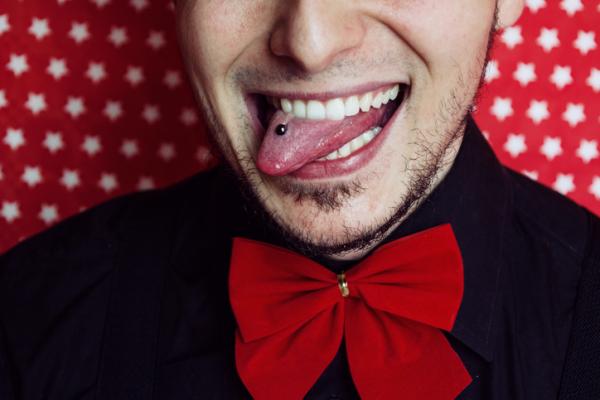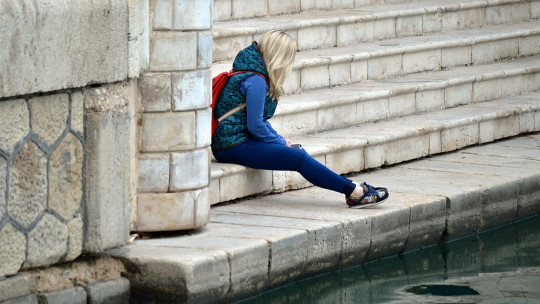Body modifications are changes that certain people need to feel different, which will depend on the psychological profile of each individual; psychology through different studies has determined that beyond people’s desire to undergo body modification of any type, it is about the search for an identity, the release of conflicts existential, the desire to attract attention, disorientation, bad influences, the desire to experiment, the need to express something to the society in which one lives; The most common body modifications are tattoos and piercings; Carrying out this body modification can influence the self-image and self-concept of an individual, since it refers to the interpretation of emotions and behaviors; For this reason, this research proposes the study of the psychological influence in body modification (Tattoo/piercing) on the self-concept of psychology students at the Bicentenaria University of Aragua.
In this PsicologíaOnline article, we will talk about Psychological Influence of Body Modification on Self-Concept
Social and cultural framework
Nowadays, worldwide, talking about body modification represents an extremely common topic and quite practiced by society even though most people do not know what this concept really means, since when talking and thinking about this term, the first thing that comes to the mind of the human being is that this is about modifications in the human body related with aesthetic surgeries, and it is not usual to think that this definition also refers to the change produced in the body through the use of tattoos, expansions, implants, scarifications and many other ways that exist to modify the body.
Body modifications are changes that certain people need to feel different, they are based on ancient practices that include everything from cuts to burns, they are not something that has emerged in the 21st century but rather goes back many years, when the aboriginal populations of The whole world had not yet been invaded by the arrival of the colonizers and could enjoy their culture without being prohibited from doing anything, and from that moment to the present, this practice has been explored in all parts of the world, motivated by different beliefs. religious, rituals, cultures, personal life stories, representative symbols, or simply for reasons of beauty and fashion, since nowadays, for example, many people get a tattoo or a piercing, since they consider that these modifications make see its most attractive image and in line with the latest trends of this branch. The reasons for carrying out body modifications are hundreds and will depend on the psychological profile of each individual.
The branch of psychology, through different studies, has determined that beyond people’s desire to undergo body modification of any type, motivated by what was stated above, it is about the search for an identity, the release of existential conflicts, the desire to attract attention, disorientation and bad influences, the desire to experiment, the need to express something to the society in which one lives.
Body modifications such as tattoos and piercings represent an act mainly of pure exhibitionism today, It no longer has a religious or group connotation However, this is a fashion that can bring serious or undesirable consequences to its users, with the fashion of clothing, hairstyles, music or others being changed when the person so wishes, or their intellectual, emotional or spiritual evolution so requires. requires, but the tattoo can be there for a lifetime to remind the person who is now an adult that that was a decision resulting from an impulse or their own ignorance.
That is why carrying out this type of practices, possibly can influence an individual’s self-image and self-concept since this concept refers to the interpretation of emotions, behaviors, comparison of the same with the behavior of another, identification of similarities, among others, for this reason it is necessary to carry out an investigation that allows determining how much it influences or These body modifications affect the self-knowledge of people of any age, standing out mostly in the university stage, given that it is at this stage where the individual has more freedom and desire to make any change in their body if they wish.
In this sense, in this research, the study of the psychological influence in body modification (tattoo and/or piercing) on the self-concept of psychology students at the Bicentenaria University of Aragua is proposed, in order to identify the relationships and consequences of this type of practices on the self-image of individuals and showing the changes and the great psychological influence that this marks for individuals who make these modifications, positively and negatively affecting their social and personal dynamics.
Goals
General objective
Determine the psychological influence of body modifications (Tattoos and Piercings) in the Self-concept of psychology students at the Bicentenaria University of Aragua.
Specific objectives
- Analyze the indicators of Body Modification and Self-concept proposed in the research.
- Establish the existing relationship between Body Modification and Self-concept
- Determine the Socio-Demographic characteristics of the population to be investigated
- Identify the reason why the population performs Body Modifications

Method
The study method used at the time of the investigation was; The field research having a quasi-experimental design and an exploratory level of research.
Participants
Our research included the participation of psychology students from the Bicentenaria University of Aragua, For the purposes of our research, a representative sample of 20 students in total was chosen who had tattoos and piercings that were the basis for the research.
Instrument used
The technique that was used to obtain the results was the creation by us of the body modification/self-concept questionnaire, which has 42 items, based on the statements referring to the study variables, whose response form is dichotomous. (but).
Statistical
The scores obtained in the application of the instruments were studied by applying the KR20 formula.
Results and conclusions
A quasi-experimental study was carried out to determine how much body modification, specifically tattoos and piercings, influences the self-concept of students from the School of Psychology of the Bicentenaria University of Aragua. In this quasi-experimental research, a instrument, to know whether or not there is any type of influence of body modification on people’s self-concept, said test was applied to a population of 20 subjects with the presence of piercings and/or tattoos whose results reflected the following assertions:
Body modifications (tattoos or piercings) do not influence self-concept of the population studied as a whole.
- In the population studied, it was found that 70% of them do not work, and 30% do.
- 95% are single and only 5% are married.
- 80% of the population reflected that their body modifications have a significant value in their lives, while 20% do not have any significant value in their lives.
This article is merely informative, at PsychologyFor we do not have the power to make a diagnosis or recommend a treatment. We invite you to go to a psychologist to treat your particular case.
If you want to read more articles similar to Psychological Influence of Body Modification on Self-Concept we recommend that you enter our Personality category.








